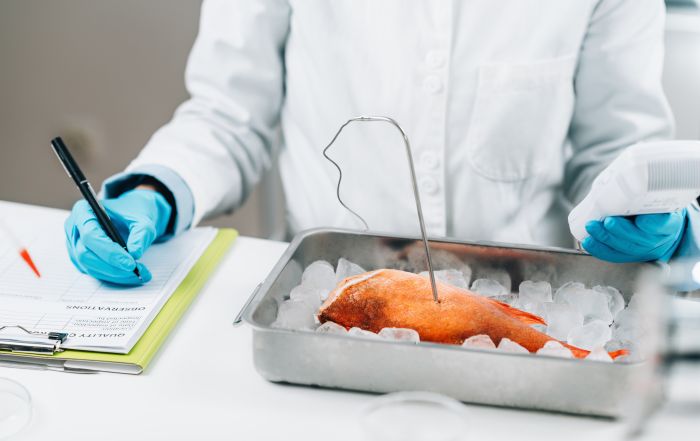Remembering the Importance of Food Safety During Food Safety Education Month
In the foodservice industry, every plate that leaves your kitchen carries not just flavors and aromas, but also the responsibility of providing safe and wholesome meals to customers. Celebrated each September, National Food Safety Education Month provides a platform for foodservice professionals to reaffirm their commitment to food safety. It’s a reminder that excellence in foodservice operations must always be accompanied by excellence in food safety; a reminder that any great meal begins with safe food as the foundation.
With everything you face as a foodservice operator, why should National Food Safety Education Month be so important for your business? If you’ve read these blogs at all, you have likely read about the importance we place on building a culture of food safety. September can be the month that you refocus your values. Your food safe culture begins with you as a manager, how you interact with your employees and where you place emphasis in your daily operations. A food safety culture values food safety – remember that your priorities can change daily, but your values stay the same. Use September to reaffirm your values with your employees and your customers.
Food safety is not just a regulatory requirement; it helps to establish and build trust with your customers. When patrons dine out, they trust that their meal will be safe to eat. By actively participating in National Food Safety Education Month, foodservice establishments reinforce their commitment to maintaining this trust with their guests.
Food safety may play a behind-the-scenes role, but its importance cannot be overstated.
For most operators, this is a great time to revisit some of our food safety practices that may have weakened during the peak summer months. What better time to do this than during this lull between summer and the holiday season? What are some ways in which you can participate in food safety month? Here are a few ideas to consider.
- Reinforce the importance of food safety training with your employees. Knowledge is the first line of defense against foodborne illnesses. Comprehensive food safety training for your staff should be a goal that all operators strive to achieve.
- If you have a HACCP program, or components of a HACCP program, conduct a thorough audit of the plan or program you have in place. Is it working? What could be improved? Engage employees in the process early on – they are truly the ones who know how it can be improved.
- Revisit your Master Cleaning Schedule, has it been kept up-to-date? Ensure that all equipment and utensils are properly cleaned and sanitized after use and are maintained appropriately. Not only will this help protect the food supply, but it will also help in extending the useful life of your equipment.
- Take a few minutes and double check your food safety supplies. Make sure your employees have the correct amounts and sizes of gloves, handwashing supplies, and cleaning chemicals to use on the job. Also be sure to inventory thermometers, and while you’re at it, make sure they are properly calibrated.
Food safety may play a behind-the-scenes role, but its importance cannot be overstated. As we honor National Food Safety Education Month, let us celebrate the dedication and commitment of foodservice professionals who work tirelessly to ensure that dining experiences are not only memorable but also free from foodborne risks. Risk nothing,
READ MORE POSTS
Mitigating Risk in the Overall Food Safety System
In the 1990s, when I took my first food safety class, we learned about a new system called HACCP. Ok, maybe it wasn’t that new, but it sure seemed new at the time. My memory has certainly faded since that class in 1997, but I do recall our discussion in the class about how HACCP would become the norm for all foodservice establishments in the future. Fast forward almost 25 years and the only foodservice operation mandated to have a HACCP program is school foodservice - certainly not the widespread adoption that we thought might come about.










